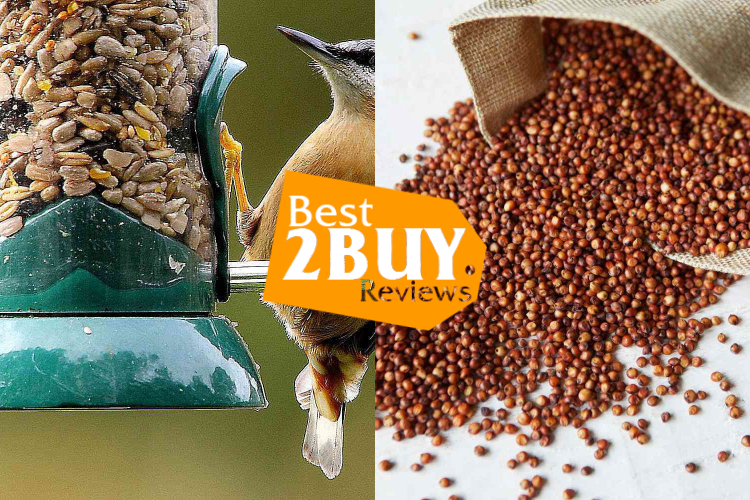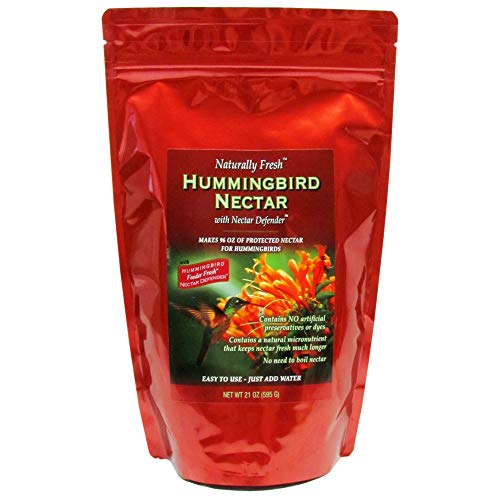- 1. Ingredients of bird food
- 1.1. Sunflower seeds
- 1.2. Millet
- 1.3. Safflower seeds
- 1.4. Nyjer (thistle) seeds
- 1.5. Peanuts
- 1.6. Suet
- 1.7. Fruit pieces
- 1.8. Insects
- 1.9. Corn
- 2. Types of Bird Food
- 2.1. Seed Mixes:
- 2.2. Suet:
- 2.3. Fruits and Berries:
- 2.4. Nectar:
- 2.5. Mealworms and Insects:
- 2.6. Peanuts:
- 2.7. Cracked Corn:
- 2.8. Specialty Foods:
- 3. Advantages of Bird Food
- 3.1. Supplementary Nutrition
- 3.2. Bird Conservation
- 3.3. Birdwatching Opportunities
- 3.4. Educational Value
- 3.5. Biodiversity
- 3.6. Research and Observation
- 3.7. Photography
- 3.8. Garden Pest Control
- 3.9. Community Engagement
- 3.10. Support for Weak or Injured Birds
- 4. How to choose Bird food?
- 4.1. Research Local Birds
- 4.2. Understand Dietary Preferences
- 4.3. Choose Quality
- 4.4. Seed Mixes
- 4.5. Species-Specific Foods
- 4.6. Seasonal Variations
- 4.7. Bird Feeder Types
- 4.8. Insect Offerings
- 4.9. Feeder Placement
- 4.10. Avoid Harmful Ingredients
- 4.11. Keep it Fresh
- 4.12. Observe and Adjust
- 4.13. Local Regulations
- 5. In conclusion
Bird food, also known as bird seed or bird feed, refers to the specially formulated mixtures of seeds, grains, and other food items that are designed to provide proper nutrition for various species of birds. It is commonly used to attract birds to gardens, yards, or bird feeders, allowing people to observe and enjoy birdwatching.

Ingredients of bird food
Bird food compositions can vary depending on the types of birds being targeted and their dietary preferences. Different bird species have different feeding habits, so the type of bird food you choose can influence the types of birds you attract.
Common ingredients found in bird food mixes include:
Sunflower seeds
These are a popular choice as they are high in fats and protein, providing essential energy for birds.
Millet
Small grains like millet are often included in bird food mixes and are favored by species like sparrows, finches, and doves.
Safflower seeds
These seeds have a thicker shell, making them less attractive to squirrels and certain birds, but some species still enjoy them.
Nyjer (thistle) seeds
These tiny seeds are a favorite of finches, particularly goldfinches and siskins.
Peanuts
Shelled or unshelled peanuts are rich in fats and are liked by many bird species, including woodpeckers and jays.
Suet
Suet is a high-energy food made from animal fat. It's especially beneficial for birds during colder months.
Fruit pieces
Some bird food blends include dried fruits such as raisins, cranberries, and chopped apples, which can attract a variety of birds.
Insects
Some bird food mixes incorporate dried insects or mealworms, which are especially valuable for insect-eating birds.
Corn
Whole corn kernels or cracked corn are often included to attract larger birds like crows, doves, and quails.
It's important to choose bird food that matches the types of birds you want to attract and the local environment. Providing a variety of food types can help attract a diverse range of bird species. Additionally, using appropriate feeders and keeping them clean helps ensure the health and safety of the birds visiting your space.
Keep in mind that while feeding birds can be a rewarding and enjoyable activity, it's essential to do so responsibly. Avoid using food that might be harmful to birds (such as moldy or spoiled items), and take steps to prevent the spread of diseases among bird populations.
Types of Bird Food
There are several types of bird food available, each catering to the dietary preferences of different bird species. Here are some common types of bird food:
Seed Mixes:
- Sunflower Seeds: These are high in fat and protein, making them a favorite among many bird species.
- Millet: Small and easily digestible, millet is loved by finches, sparrows, and other small birds.
- Safflower Seeds: These have a thicker shell and are often favored by cardinals, grosbeaks, and certain other birds.
- Nyjer (Thistle) Seeds: Loved by finches, especially goldfinches, these tiny seeds are rich in oil.
- Mixed Seeds:Commercial seed mixes combine a variety of seeds to attract a broader range of bird species.
Suet:
- Suet Cakes: Made from animal fat, suet cakes provide high-energy nutrition and are especially beneficial during cold months. They are enjoyed by woodpeckers, nuthatches, and other clinging birds.
Fruits and Berries:
- Dried Fruits: Raisins, currants, and chopped apples can attract species like robins, thrushes, and waxwings.
- Berries:Some birds, like cedar waxwings and thrushes, are attracted to fresh berries such as elderberries and serviceberries.
Nectar:
- Hummingbird Nectar: A mixture of sugar and water, simulating the natural nectar of flowers, is used to attract hummingbirds.
Mealworms and Insects:
- Dried Mealworms: These are a great source of protein for insect-eating birds like bluebirds, wrens, and warblers.
- Live Insects: Some bird enthusiasts offer live mealworms, crickets, or other insects to attract a wider variety of insectivorous birds.
Peanuts:
- Peanut Kernels: These can be offered shelled or unshelled and are enjoyed by woodpeckers, jays, and nuthatches.
Cracked Corn:
- Whole Corn Kernels: Attracts larger birds such as crows, doves, and quails.
Specialty Foods:
- Bird Pellets or Crumbles: These are formulated to provide balanced nutrition for pet birds and certain wild birds.
- Commercial Bird Feed Mixes:These are blends made by various brands, designed to attract specific bird species or provide a well-rounded diet.
When selecting bird food, it's important to consider the local bird species and their dietary preferences. Different types of feeders can also be used to accommodate different bird sizes and behaviors. Keep in mind that offering a variety of foods can attract a diverse range of birds to your feeding area. Additionally, ensure that the bird food is fresh and free from mold to keep the birds healthy.
Advantages of Bird Food
Using bird food to attract and feed birds offers several advantages, both for the birds themselves and for those who enjoy observing and interacting with them:
Supplementary Nutrition
Bird food provides additional sources of nutrition for birds, especially during times when natural food sources are scarce, such as in winter or during droughts. This can help birds maintain their health and energy levels.
Bird Conservation
Providing bird food can assist in the conservation of certain bird species, particularly those that might be struggling due to habitat loss or other environmental changes. Offering supplemental food can increase their chances of survival and reproduction.
Birdwatching Opportunities
Bird enthusiasts and nature lovers can enjoy the beauty and behavior of various bird species by attracting them to their yards or gardens. Birdwatching can be a relaxing and educational hobby.
Educational Value
Feeding birds can be an educational activity, especially for children. It teaches them about different bird species, their behaviors, and their dietary needs.
Biodiversity
By offering a variety of bird foods, you can attract a diverse range of bird species to your feeding area. This contributes to local biodiversity and allows you to observe birds that you might not encounter otherwise.
Research and Observation
Bird feeding stations can serve as mini research sites, allowing you to observe bird behavior, migration patterns, and interactions between different species. This information can contribute to scientific understanding.
Photography
Bird feeders provide a great opportunity for photographers to capture stunning images of birds up close, showcasing their colors, textures, and unique features.
Garden Pest Control
Some bird species, such as insectivorous birds, help control garden pests by feeding on insects and larvae. Attracting these birds can offer natural pest control benefits.
Community Engagement
Bird feeding can bring communities together as people share tips, experiences, and observations about the birds that visit their areas. It can foster a sense of connection to nature and fellow bird enthusiasts.
Support for Weak or Injured Birds
In some cases, you might encounter weak or injured birds that could benefit from a source of easy-to-access food while they recover. However, it's important to consult with wildlife rehabilitation experts before attempting to help such birds.
It's worth noting that while there are many advantages to bird feeding, it's important to do so responsibly. Ensure that the bird food you offer is appropriate for the local bird species and the season, and maintain clean feeding areas to prevent the spread of diseases among birds. Additionally, use feeders and practices that discourage visits from aggressive or invasive species.
How to choose Bird food?
Choosing the right bird food involves considering the types of birds you want to attract, their dietary preferences, the local environment, and the season. Here's how to make an informed decision when selecting bird food:
Research Local Birds
Start by identifying the bird species that are common in your area. Different birds have different diets, so knowing which species you want to attract will guide your choices.
Understand Dietary Preferences
Learn about the dietary preferences of the birds you're targeting. Some birds prefer seeds, while others prefer insects, fruits, or nectar. Catering to their preferences will increase the chances of attracting them.
Choose Quality
Opt for high-quality bird food from reputable brands. Cheap or low-quality bird food might be less appealing to birds and could even contain fillers that offer little nutritional value.
Seed Mixes
If you're looking to attract a variety of birds, consider mixed seed blends. These can include a combination of sunflower seeds, millet, safflower seeds, and other ingredients that appeal to different species.
Species-Specific Foods
Some bird foods are formulated specifically for certain species, such as hummingbird nectar or woodpecker suet. These can help attract and cater to particular birds.
Seasonal Variations
Different bird foods may be more suitable for different seasons. High-fat foods like suet are valuable in colder months, while insects and fruits might be more abundant in warmer seasons.
Bird Feeder Types
Consider the types of feeders you have or plan to use. Different feeders are designed to accommodate specific types of food and bird species. For example, tube feeders are great for seeds, while suet cages are designed for suet cakes.
Insect Offerings
If you're interested in attracting insect-eating birds, consider offering dried mealworms or live insects in addition to seeds.
Feeder Placement
Think about where you'll place your bird feeders. Some birds prefer ground feeding, while others like elevated feeders. Make sure the food is easily accessible to the birds and consider their safety from predators.
Avoid Harmful Ingredients
Avoid offering salted or seasoned foods, as well as any food that might be harmful to birds. For example, avoid offering bread, which lacks nutritional value and can fill birds without providing necessary nutrients.
Keep it Fresh
Ensure that the bird food you offer is fresh and free from mold. Regularly clean your feeders to prevent the spread of diseases among the birds.
Observe and Adjust
Watch which birds are visiting your feeders and observe their preferences. You might need to adjust your food offerings based on their behavior.
Local Regulations
Be aware of any local regulations regarding bird feeding. In some areas, feeding birds might not be recommended due to potential negative impacts on local ecosystems or the spread of diseases.
Remember that offering a variety of bird food types can attract a diverse range of bird species to your feeding area, enhancing your birdwatching experience. It might take some trial and error to find the perfect combination of foods that suits your local bird population.
In conclusion
Bird food offers several benefits for both the birds and the people who provide it. You can find Bird food in Amazon. By buying in Amazon, you will get a great selection with promotion. It’s very convenient if buy in Amazon
We aslo have top Bird food in our website. With our recommendation we hope that you will choose right Bird food.
I’m David Lee - editor at best2buy.reviews. If you need our support. Kindly comment below. I’m always available to response you.











